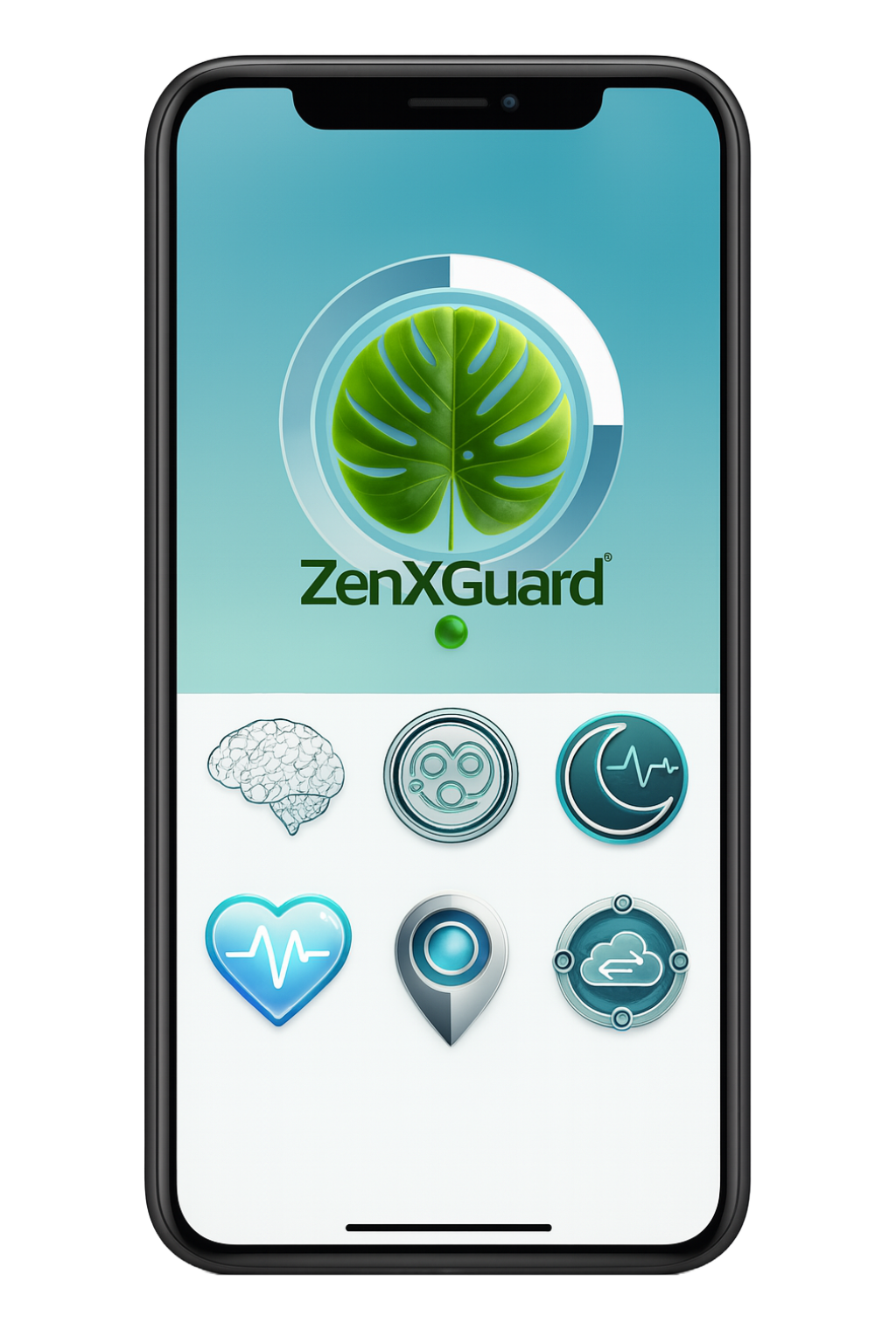Try ZenXGuard Today
Take control of your life with this powerful technology, which monitors key indicators to help predict manic episodes and prompt immediate support from doctors, family, and friends.

Fluctuations in blood oxygen saturation or increased breathing rate may help detect early episodes.
Sudden spikes in heart rate or lowered HRV can signal the onset of mania, prompting early intervention.
Shorter sleep duration, delayed sleep or fragmented onset sleep patterns could signal an approaching manic episode.
Elevated beta waves or abrupt EEG shifts may signal impending mood destabilization, prompting timely clinical intervention.
Shorter messages or prolonged delays in responses may indicate social withdrawal and disengagement, prompting timely supportive outreach.
Ambient light fluctuations or increased noise levels may disrupt routines, alerting caregivers to emerging behavioral concerns early.